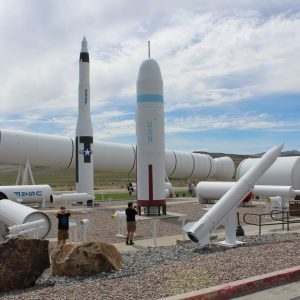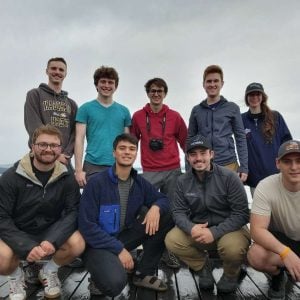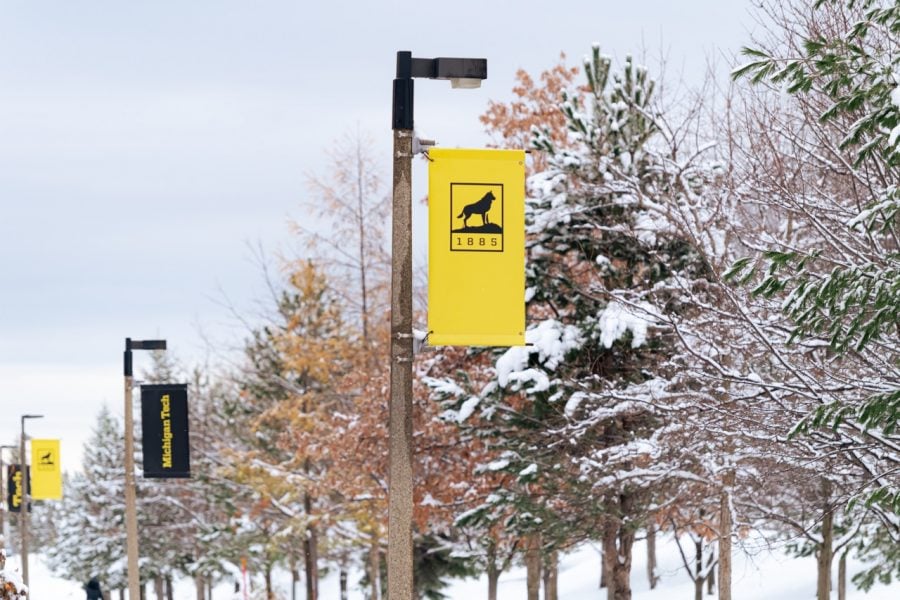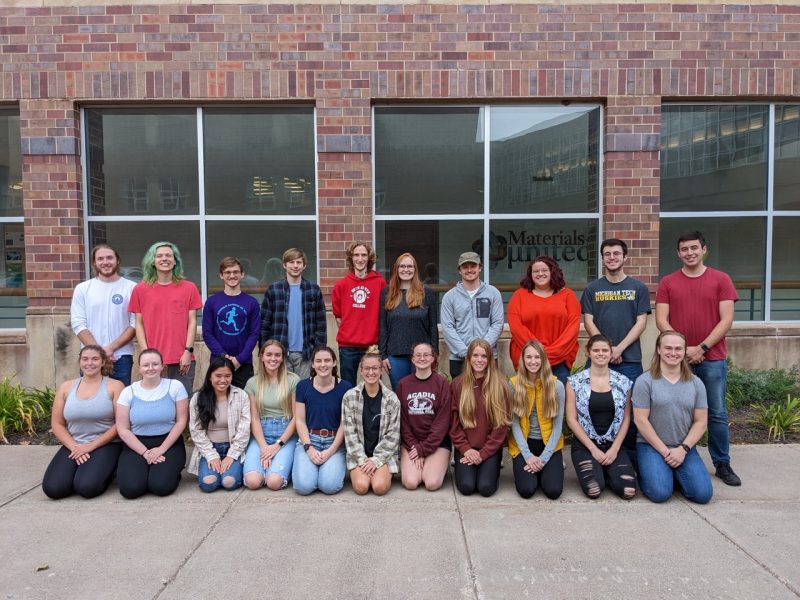By The Aerospace Enterprise
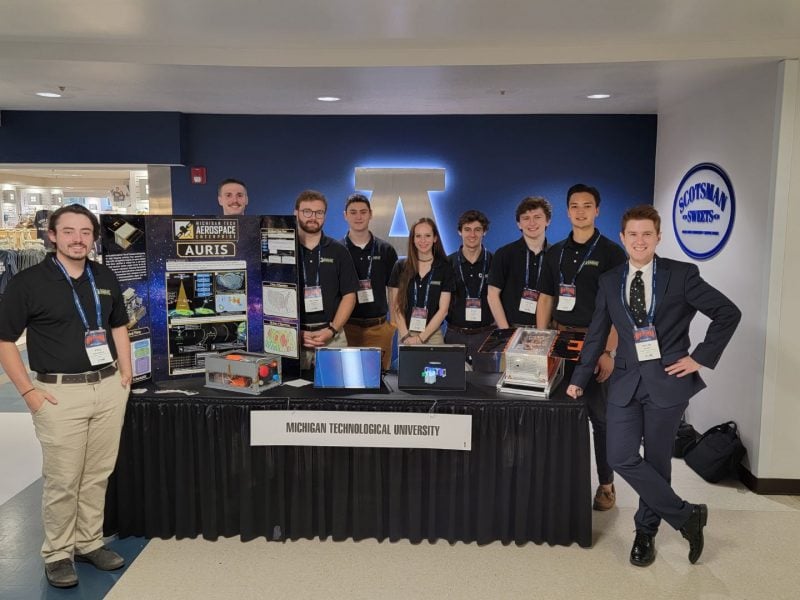
The Michigan Tech Aerospace Enterprise describes itself as a collection of research, development, and educational laboratories dedicated to advancing U.S. Space Technology. Their current projects include the Auris and Stratus CubeSats. At the end of this summer, nine members embarked on a trip to Logan, Utah, to attend the Small Satellite Conference (SmallSat). They showcased the Auris mission, explored many company booths, and got opportunities to talk with industry professionals.
The SmallSat Conference is a week-long conference held each year in Logan, Utah, and is internationally recognized as the premier conference on small satellites. Or, as Matthew Carey described, “a massive conference for anyone excited about space!” Six team members who attended SmallSat this past summer share their experience at the conference and their learnings or takeaways from the trip.
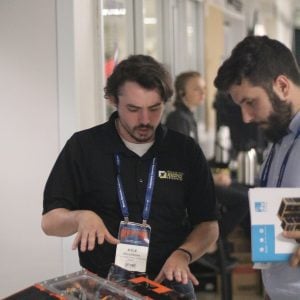
All team members who shared their insights about the conference are graduating in Spring 2023 and pursuing Mechanical Engineering majors with various minors. Brian Johnson, Kjia Moore, Nolan Pickett, and Will Jenness are all pursuing Aerospace Engineering minors. Pickett and Jenness are also pursuing a second minor in Electrical Engineering. Matthew Carey is pursuing a second major in Electrical Engineering, and Will Galvin is pursuing a minor in Physics.
Pickett, the current Aerospace Enterprise Program Manager, said, “one of the most incredible opportunities the conference offered was igniting a passion in each of the nine attending members.” Those present at SmallSat include industry professionals considered the best minds in the small satellite community, the most well-known companies in the industry, vendors the Aerospace Enterprise team works with, and other universities and students interested in space technology and the aerospace industry. For example, Jenness attended because he wanted to get a better feel for where the industry is today and found that “the learning experience it [SmallSat] provides is indispensable. There is no other place where I could have been exposed to so much so quickly.”
In addition to having a career fair style set up where attendees can visit company and university booths to learn more about the projects those organizations are working on, the conference had technical presentations about space technology research by undergraduate, master, and Ph.D. students. Galvin noted that these presentations were one of his favorite memories of SmallSat and explained that “getting to see a diverse range of topics and expertise got me excited for my potential in higher education and career overall.” Johnson shared similar thoughts that learning more about the importance of diverse teams with different backgrounds and specialties helped him recognize “where I think I best fit into the puzzle.”
SmallSat isn’t just a place to learn about where the industry is today. It’s also a place to expand your network, meet new people, and share the work you’ve done. Between exploring the other activities at the conference, the team took turns at the MTU booth to share the Auris mission with anyone curious about their satellite and the space research they are doing. Moore was able to hand out her resume, meet tons of people, learn about many scholarship opportunities, and had interviews scheduled soon after the conference. She shares that “attending SmallSat resolidified my passion for aerospace.” Jenness also talked about his networking experience, saying, “I truly feel that I will get a job opportunity out of this experience.” Galvin collected a “large stack of business cards” that he plans to use during his upcoming career/job searches.
Although the primary purpose of this trip was to attend the conference, the team was able to fit more into their schedule to make the journey even more worthwhile. During the drive to and from Logan, Utah, they were able to take quick visits to Yellowstone National Park, tour the Northrop Grumman Rocket Garden, and see the sunrise over Badlands National Park. Once they arrived in Utah, they were greeted with open arms by Aerospace Enterprise alumni Marcello Guadagno, Sarah Wade, Steven Golm, Seth Mares, Ted Kretzmann, Cole Gringas, and Sam Baxendale. These alumni were excited to meet current members of the enterprise and wanted to help the team experience SmallSat by offering them a place to stay in addition to sharing career advice and their experience in the industry so far.
“All members of our crew came back to Michigan Tech with a new fire in their eye” is how Pickett summed up the trip’s success. Overall, this trip to SmallSat gave the team a wide-eyed look at the aerospace industry through technical presentations, company booth visits, and networking opportunities with industry professionals.
The Aerospace Enterprise plans to attend the SmallSat conference every year, bringing a new batch of students and exposing them to the incredible technology in the space industry. Incoming Program Manager, Seth Quayle, will organize the team’s next trip to the conference.
Interested in joining Aerospace Enterprise? Like any enterprise, Aerospace is open to students of any major, and no prior experience is required. Students typically spend three to four years on a project and have opportunities to build their skills, help improve designs, and prepare for a career in the aerospace industry. The team’s number of open positions depends on current enrollment and varies from semester to semester.
